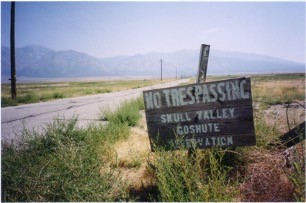Details of the Initiative
I have studied the relationship between environmental destruction caused by nuclear development in the United States and disparities in racial discrimination, colonialism, and political economy. Potential sites for uranium development, production and testing of nuclear weapons, and disposal of radioactive waste include land deemed “discardable” for national security in a military and economic superpower and people living there.
In particular, I have learned a lot from the hardships that indigenous people face after being driven to the “frontier,” which has long been regarded as the site of nuclear development, the struggles for survival, and their stories.
My book “‘Gisei Kuiki’ no Amerika: Kaku Kaihatsu to Senju-minzoku” (America as ‘Sacrifice Zones’ – Nuclear Development and Indigenous Peoples) Iwanami Shoten, 2020 won the 9th Kawai Hayao Prize for social sciences and humanities. In the evaluation comment, it was pointed out that the described situations are often similar to those in Japan.
In order to realize a sustainable society, it is necessary to start with the creation of a system that enables the vulnerable to participate in the decision-making process of environmental policies. As a geographer, I would like to continue my work with students and colleagues based at Meiji University, while clarifying the spatial structure and historical context of discrimination and disparities.



